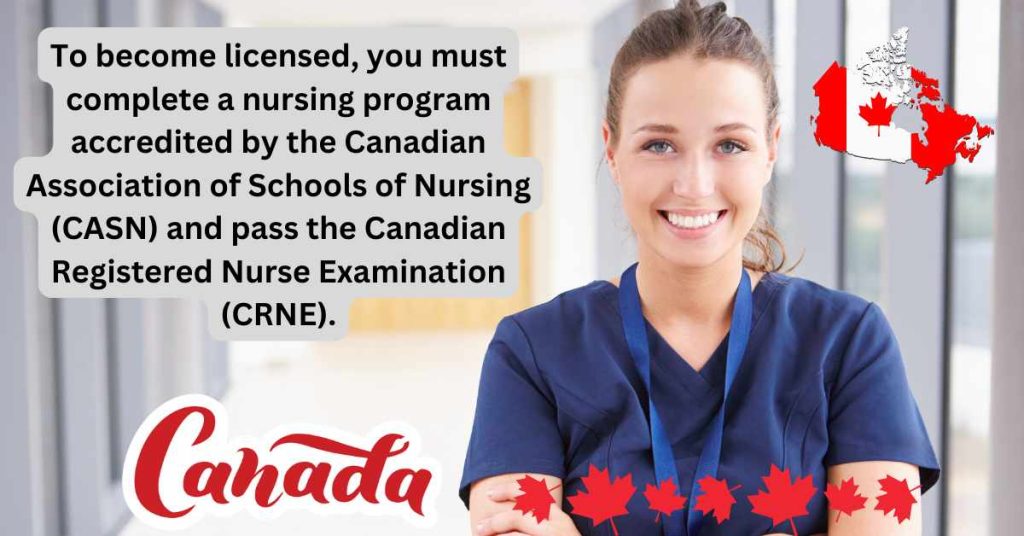Can I Study Nursing Without Science Background In Canada?

Yes, you can study nursing in Canada without a science background. However, some nursing programs may have prerequisites in biology, chemistry, and other relevant sciences. If you do not have these prerequisites, you can take them at a local college or university before applying to nursing school.
A few nursing programs in Canada are specifically designed for students without a science background. These programs typically include a bridge year that covers the necessary science prerequisites.
Let's dive into the question of Can I Study Nursing Without Science Background In Canada?

Nursing is a rewarding and in-demand profession in Canada. Nurses play a vital role in the healthcare system, providing care to patients of all ages and backgrounds. While a strong background in science benefits nursing students, it is optional for all nursing programs.
Some nursing schools offer programs for students who have yet to experience science or who have not taken biology in high school. These programs typically include prerequisite courses in biology, chemistry, and other relevant sciences.
- Step 1: Research nursing programs in your area
- Step 2: Take prerequisite courses in biology and other relevant sciences
- Step 3: Gain experience in the healthcare field
- Step 4: Write a strong personal statement for your nursing school application
- Step 5: Interview for nursing programs
- Tips For Studying Nursing Without A Science Background
- FAQs
- Q: Can I become a nurse in Canada without a science background?
- Q: What are some of Canada's most common science prerequisites for nursing programs?
- Q: What is a bridging program?
- Q: What are some tips for writing a strong personal statement for my nursing school application?
- Q: What are the admission requirements for nursing programs in Canada?
- Q: How long does it take to become a nurse in Canada?
- Q: What are the job prospects for nurses in Canada?
- Q: How much do nurses earn in Canada?
- Q: What are some of the challenges of being a nurse?
- Q: What are some of the benefits of being a nurse?
- Q: What are the different types of nursing jobs available in Canada?
Step 1: Research nursing programs in your area
The first step to studying nursing in Canada without a science background is researching nursing programs in your area. Find out the prerequisites for each program and whether or not they offer support for students without a science background.
You can use the following resources to find nursing programs in your area:
- The Canadian Nurses Association (CNA) website
- The Canadian Association of Schools of Nursing (CASN) website
- The websites of individual nursing schools
Step 2: Take prerequisite courses in biology and other relevant sciences
If you do not have the prerequisites for the nursing program that you are interested in, you may be able to take them at a local college or university. Some nursing schools also offer bridging programs that cover the necessary science prerequisites.
Here are some of the most common science prerequisites for nursing programs in Canada:
- Biology
- Chemistry
- Anatomy and physiology
- Microbiology
- Statistics
Step 3: Gain experience in the healthcare field
Gaining experience in the healthcare field is a great way to learn about the nursing profession and to develop the skills that you will need to be successful. You could gain experience by volunteering at a hospital or clinic, shadowing a nurse, or working as a certified nursing assistant (CNA).
Step 4: Write a strong personal statement for your nursing school application
In your statement, you should explain why you are interested in nursing and believe you are a good fit. You should highlight any relevant experience or skills, even those unrelated to nursing.
Your statement is an opportunity to show the admissions committee that you are a passionate and motivated student committed to a nursing career.
Step 5: Interview for nursing programs
Once you have submitted your nursing school application, you may be invited to interview with the admissions committee. The interview allows the admissions committee to learn more about you and your motivation for becoming a nurse.
During the interview, you can be asked about your academic background, healthcare experience, and reasons for wanting to become a nurse.
Tips For Studying Nursing Without A Science Background
Here are some tips for studying nursing without a science background:
Research nursing programs in your area
Find out the prerequisites for each program and whether or not they offer support for students without a science background.
Take prerequisite courses in biology and other relevant sciences
This will help you learn the necessary material to succeed in nursing school.
Gain experience in the healthcare field
This could involve volunteering at a hospital or clinic, shadowing a nurse, or working as a certified nursing assistant (CNA). Healthcare experience will help you learn about nursing and develop the skills needed to succeed.
Write a strong personal statement for your nursing school application
In your statement, you should explain why you are interested in nursing and believe you are a good fit. You should highlight any relevant experience or skills, even if they are unrelated to nursing.
If you are serious about a career in nursing, do not let the lack of a science background discourage you. There are many ways to overcome this challenge and achieve your goals.
FAQs
Q: Can I become a nurse in Canada without a science background?
A: Yes, you can become a nurse in Canada without a science background. However, some nursing programs may have prerequisites in biology, chemistry, and other relevant sciences. If you do not have these prerequisites, you may be able to take them at a local college or university before applying to nursing school.
Q: What are some of Canada's most common science prerequisites for nursing programs?
A: The most common science prerequisites for nursing programs in Canada include biology, chemistry, anatomy and physiology, microbiology, and statistics.
Q: What is a bridging program?
A: A bridging program is a program that helps students who do not have the necessary science prerequisites to meet the requirements of a nursing program. Bridging programs typically cover the necessary science prerequisites in an accelerated format.
Q: What are some tips for writing a strong personal statement for my nursing school application?
A: Here are some tips for writing a strong personal statement for your nursing school application:
- Be specific and tell your story. What inspired you to become a nurse? What are your goals for the future?
- Be honest and authentic. Don't try to be someone you're not.
- Be clear and concise. Use simple language and avoid jargon.
- Proofread your statement carefully before submitting it.
Q: What are the admission requirements for nursing programs in Canada?
A: The admission requirements for nursing programs in Canada vary by program. However, most programs require applicants to have a high school diploma or equivalent and to have completed certain science prerequisites. Some programs may also require applicants to have experience in the healthcare field.
Q: How long does it take to become a nurse in Canada?
A: It takes four years to complete a Bachelor of Science in Nursing (BSN) degree program in Canada. BSN degree programs are required for registered nurse (RN) licensure in Canada.
Q: What are the job prospects for nurses in Canada?
A: The job prospects for nurses in Canada are excellent. Nurses are in high demand in Canada, and the demand is expected to grow in the coming years.
Q: How much do nurses earn in Canada?
A: The median salary for nurses in Canada is C$77,500 annually. Salaries vary depending on experience, location, and other factors.
Q: What are some of the challenges of being a nurse?
A: Nursing can be a challenging profession. Nurses often work long hours and may have to deal with difficult situations. However, nursing is also a rewarding profession. Nurses have the opportunity to make a difference in the lives of their patients.
Q: What are some of the benefits of being a nurse?
A: Nursing is a stable and well-paying profession. Nurses also enjoy several benefits, such as job security, health insurance, and paid time off.
Q: What are the different types of nursing jobs available in Canada?
A: There are many different types of nursing jobs available in Canada. Some of the most common types of nursing jobs include:
- Registered nurse (RN)
- Licensed practical nurse (LPN)
- Nurse practitioner (NP)
- Nurse midwife
- Nurse anesthetist
- Nurse educator
- Nurse administrator
Suppose you want to become a nurse in Canada without a science background. In that case, I encourage you to research and contact nursing schools in your area to learn more about their admission requirements.
I hope this article will clarify your question about Can I Study Nursing Without Science Background In Canada?

Recommendation